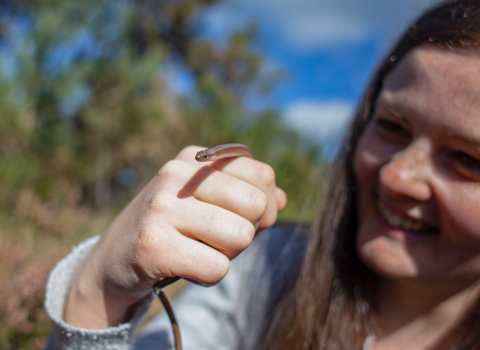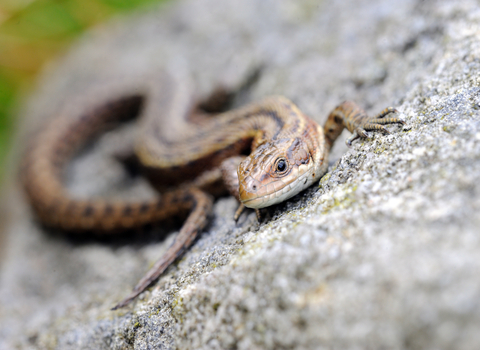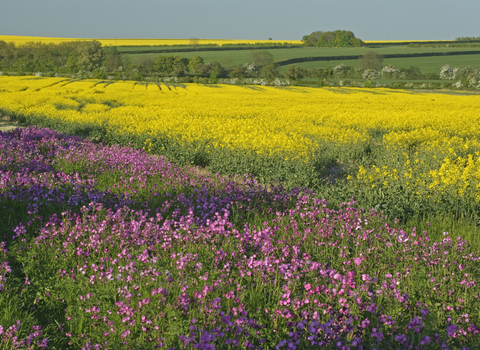Our specialist ecological consultants can survey for a range of protected species and advise on a wide variety of ecological considerations.
We use our survey results to inform planning applications, prepare management plans, identify suitable mitigation requirements and monitor the success of management practices. We advise on practical and effective design solutions for your proposed development to ensure the smooth delivery of your projects.
As part of our Preliminary Ecological Appraisals, we will assess habitats for their suitability for protected species, search for historical species records and make recommendations on project delivery to ensure Local Planning Authorities have the right information to assess your planning application. Click on the species below for more information.
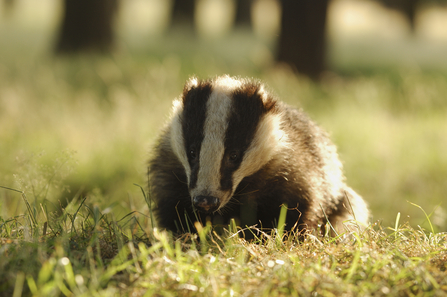
© Andrew Parkinson/2020VISION
Specialist species surveys that we offer include:
Bat
You will need bat surveys if you are planning a development that could harm or disturb bats or their roosts. This can include re-tiling work, an extension on a building, or developments that involve demolition of a building or felling of trees.
Roost assessments can be carried out at any time of year, but emergence surveys are restricted to when bats are active: From May until September.
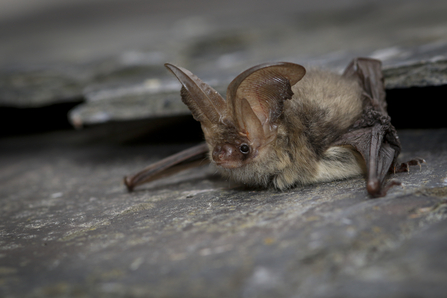
© Tom Marshall
Great-crested Newts
You will need a Great Crested Newts Survey if you are planning a development that could harm or disturb Great Crested Newts. For some developments, protected species surveys will be required to get planning permission.
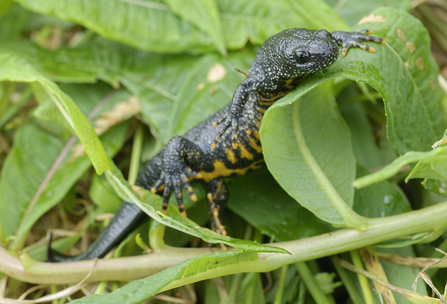
© John Bridges
Badger
If your project has the potential to affect badgers then you will need a Badger Survey. Surveys can be undertaken at any time of the year but the optimal seasons are during spring and autumn. Badger surveys are required to identify whether the species is present or likely absent, and assess sett activity levels.

© Andrew Parkinson/2020VISION
Barn Owl
Barn Owls are protected under the Wildlife and Countryside Act 1981 and are on Schedule 1, meaning they are protected from killing, injuring or taking. It is illegal to take, damage or destroy a nest that is in use or being built, or to take or destroying eggs. Disturbing a barn owl while it is building a nest or is in, on or near a nest containing eggs or young is also prohibited.
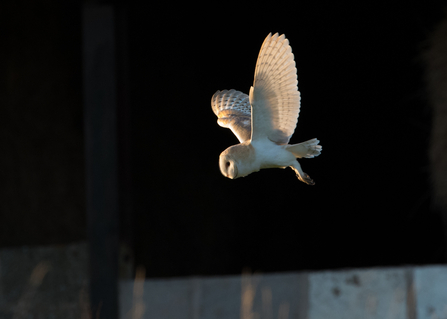
© Donald Sutherland
Hazel Dormouse
Hazel dormice and their habitat are protected by the Wildlife and Countryside Act 1981, the Countryside and Rights of Way Act 2000, the Natural Environment and Rural Communities Act 2006 and the Conservation of Habitat and Species Regulations 2010.
It is illegal to capture, injure or kill, disturb any individual, as well as being against the law to damage, destroy or obstruct the access to a breeding or nesting site.
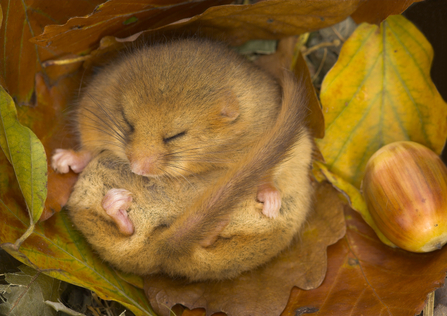
© Danny Green
Otter
If you are planning works on a site which includes, can affect indirectly or is adjacent to a suitable habitat for Otters (like a water body) you will need a specialist survey.
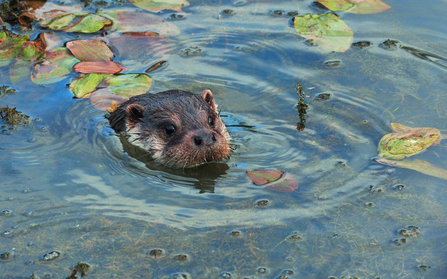
© Elliot Smith
Reptiles
You will need reptile surveys if you are planning a development that could harm or disturb reptiles. For example, developments that contain suitable habitats (eg. log and rubble piles, long grass, areas of direct sunlight) are higher risk for reptile species. For some developments, protected species surveys will be required to get planning permission.
Reptile surveys can be conducted between April and September, but conditions are sub-optimal in June and July due to high summer temperatures. Due to this, surveys during this period will be less conclusive about absence or population size, and a precautionary stance is more likely to be needed.
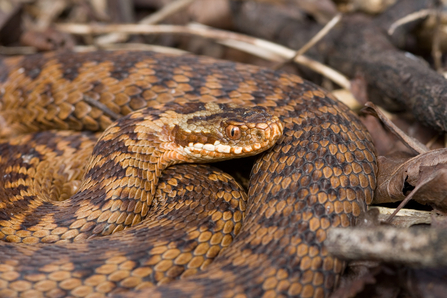
©Tom Marshall
Roman Snails
You will need surveys for Roman Snails if you are planning to conduct works on a site that is likely to contain Roman snails, such that they may be killed or injured, or may require translocation. They can be found in a variety of habitats, but are specifically known to inhabit areas with chalky soils (eg. chalk quarries and the North Downs).
© Katy Gower
White-clawed Crayfish
Generally development works affect disturbance to the river bank with the consequential destruction of crayfish refuges or water pollution from sediment release. If planned works will have a negative impacts for crayfish and/or its habitat you can contact Surrey Wildlife Trust Ecology Services for an Ecological Impact Assessment report and for helping you to plan any further action.
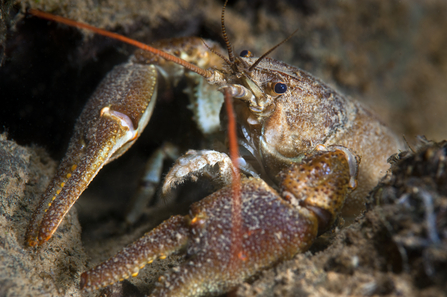
© Alexander Mustard/2020VISION
Wild Birds
You will need bird surveys if you are planning works or developments that will affect wild birds, particularly those identified those in Schedule 1 of the Wildlife and Countryside Act, and particularly during breeding season. This includes developments that will damage or remove breeding sites (eg. soil stripping in ground nesting habitats or removing trees), disturb birds and their young, or demolish or change buildings or natural features that birds use.
The summer survey season for breeding birds is between March and August. For over-wintering birds, the survey season is between November and February.
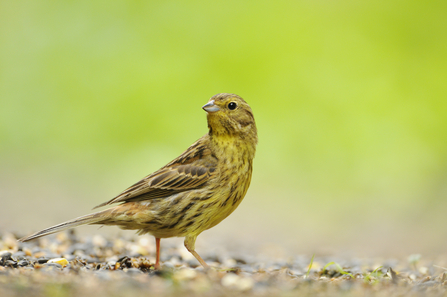
© Fergus Gill/2020VISION
NVC Surveys
Phase II botanical surveys are referred to as National Vegetation Classification (NVC) surveys. They are usually undertaken to inform management plans and Ecological Impact Assessments. NVC surveys are usually undertaken between April and August.
© Richard Burkmar
Terrestrial & aquatic surveys
Terrestrial and aquatic surveys are usually undertaken to inform management plans and Ecological Impact Assessments. Invertebrate surveys are usually undertaken between April and October.
Find out more
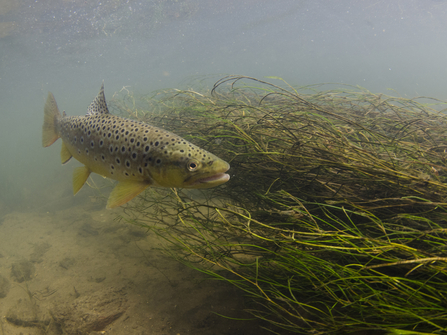
© Jack Perks
SNCI Surveys
Sites of Nature Conservation Importance (SNCI) are protected under local planning policies. We survey these for private individuals and Local Planning Authorities to assess whether their condition still meets the listing criteria.
Find out more
Water Voles
A Water Vole survey would be required if you have development plans that could harm or disturb Water Voles. Plans would include developments in an area where water voles are likely to be present or historical records suggest likewise. A specialised survey can be necessary for planning permission depending on the type of development.
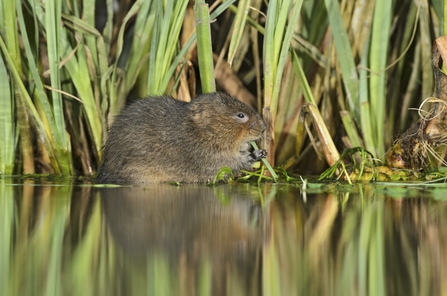
Water Vole (Arvicola amphibius), Kent, UK
SWT Ecology Services’ pragmatic advice has been much appreciated and their recommendations not onerous for us to fulfil. This has been invaluable for us to deliver our portfolio of projects!
McCarthy & Stone
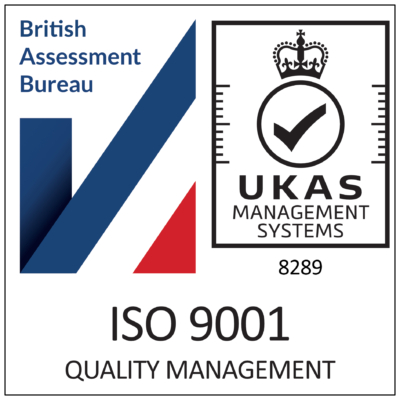
|
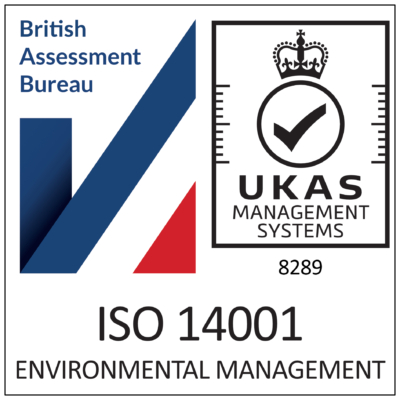
|
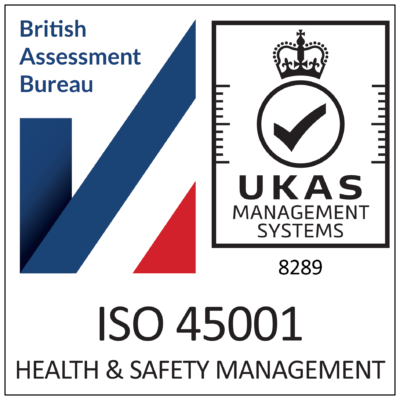
|
|---|
 |
|---|

